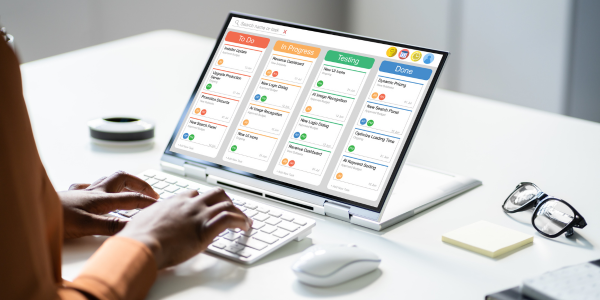Ratio Utility Billing (RUBS)
Efficient Cost Allocation for Multi-tenant Properties
Imagine a bustling apartment complex where residents enjoy the convenience of shared utilities, but the responsibility for their usage isn’t always clear. Enter Ratio Utility Billing (RUBS), a system designed to allocate utility costs fairly among tenants in multi-unit buildings. Instead of individual meters, RUBS relies on a ratio-based formula that considers factors like unit size, occupancy, and building characteristics to distribute expenses for water, sewer, and trash services.
This approach has roots in the mid-20th century, born from a need for efficient utility management. As awareness about energy conservation and environmental responsibility grew, RUBS found a new purpose: encouraging tenants to become more mindful of their consumption habits. After all, when you share the cost, you’re more likely to share the responsibility.
Bringing RUBS to Life: Implementation and Considerations
Implementing RUBS is a multi-step process, starting with a thorough assessment of the property's utility usage patterns. This helps determine if RUBS is a feasible solution for the specific building. Property managers then select a RUBS provider, carefully considering features and pricing to find the best fit for their needs.
Together, the property manager and RUBS provider develop a customized formula that takes into account local regulations, tenant lease agreements, and factors like:
- Unit square footage: Larger units typically use more utilities.
- Number of occupants: More occupants often lead to higher consumption.
- Number of bedrooms or units: This can further refine the allocation process.
Transparency is paramount throughout the implementation. Tenants need to be informed about the transition to RUBS, the benefits they can expect—like potential cost savings—and practical tips for responsible resource usage. Open communication can address concerns and foster a sense of shared responsibility.
Calculating Charges: Formulas and Factors
How does RUBS crunch the numbers? Several formulas exist, each with its own approach:
- Square footage: Allocates costs based on the size of each unit.
- Occupant count: Divides expenses equally among residents.
- Combined method: Blends square footage and occupant count for a more nuanced allocation.
Of course, external factors beyond the control of tenants can influence utility costs as well:
- Seasonal fluctuations: Utility usage often changes with the weather.
- Changes in occupancy: Consumption patterns shift as residents move in and out.
- Location: Utility rates can vary significantly by region.
By considering these variables, property managers can create a RUBS system that adapts to the unique needs of their building.
Benefits, Criticisms, and Alternatives
One of RUBS' biggest strengths is its ability to promote water and energy conservation. When tenants are aware of their proportionate share of utility costs, they're more likely to embrace water-saving practices and invest in energy-efficient appliances. This translates into lower overall consumption, reduced expenses, and a lighter environmental footprint.
However, RUBS isn't without its critics. Some argue that it can be unfair to tenants who are already conscious of their usage, potentially forcing them to subsidize the habits of their less-conscientious neighbors. Concerns also exist around transparency and the potential for abuse by property managers who might inflate utility expenses.
Submetering emerges as a potential alternative. By equipping each unit with its own meter, submetering ensures precise measurement of individual consumption. While it can be more costly to implement, submetering eliminates the uncertainties of allocation formulas and ensures that tenants pay only for the resources they use.
Building a Sustainable Future with RUBS
Looking ahead, technological advancements promise to reshape the landscape of RUBS. Smart grids, with their real-time data and sophisticated management capabilities, can enhance accuracy and responsiveness in cost allocation. The Internet of Things (IoT) brings a wave of sensors and devices that can monitor individual consumption levels, enabling more dynamic and personalized billing systems.
While RUBS navigates these exciting advancements, regulatory trends will also shape its future. Public Utilities Commissions (PUCs) are exploring innovative approaches like spot pricing, incentivizing efficient usage by charging higher rates during peak demand periods. Staying informed about these evolving regulations is crucial for both property managers and tenants.
Ultimately, the success of RUBS hinges on clear communication, regular review, and a commitment to fairness and transparency. By embracing technology, adapting to regulatory shifts, and prioritizing tenant education, RUBS can evolve into a powerful tool for promoting responsible resource management and building a more sustainable future for multi-tenant communities.
Sharing the Cost, Sharing the Future
RUBS isn't just a billing system; it's a framework for building a more sustainable and equitable future for multi-tenant communities. By promoting transparency, encouraging responsible consumption, and adapting to evolving technology and regulations, RUBS can empower both property owners and tenants to share not only the cost of utilities, but also the responsibility for creating a more environmentally conscious and financially sound future. As we navigate the complexities of shared resources, RUBS offers a valuable tool for building a brighter future, one building, and one tenant, at a time.
More about Coastline Equity
Property Management Services
 Learn More
Learn MoreOur team will handle all your property needs, offering specialized services such as in-depth inspections, liability management, staff recruitment and training, and round-the-clock maintenance—expert support tailored to the unique requirements of your real estate assets.
About Us
 Learn More
Learn MoreOur dedicated team transforms property management challenges into opportunities. From tenant management to streamlined rent collection and proactive maintenance.
Property Management Excellence
 Learn More
Learn MoreAs a contributing author for Forbes, Anthony A. Luna brings a wealth of expertise and knowledge in the property management industry, real estate sector, and entrepreneurship, providing insights and thought-provoking analysis on a range of topics including property management, industry innovation, and leadership.
Anthony has established himself as a leading voice in the business community. Through his contributions to Forbes, Anthony is set to publish his first book, "Property Management Excellence" in April 2025 with Forbes Books.
Insights
 Learn More
Learn MoreLearn more about Coastline Equity's property management practices & processes and how we support our clients with education and a growth mindset.
Coastline Equity Property Management is your partner as you continue to learn and grow.
News & Updates
Property Management Made Easy
Los Angeles
1411 W. 190th St.,
Suite 225
Los Angeles, CA 90248
Temecula
41743 Enterprise Circle N.,
Suite 207
Temecula, CA 92590
P.O. BOX #1489
TORRANCE, CA 90505






